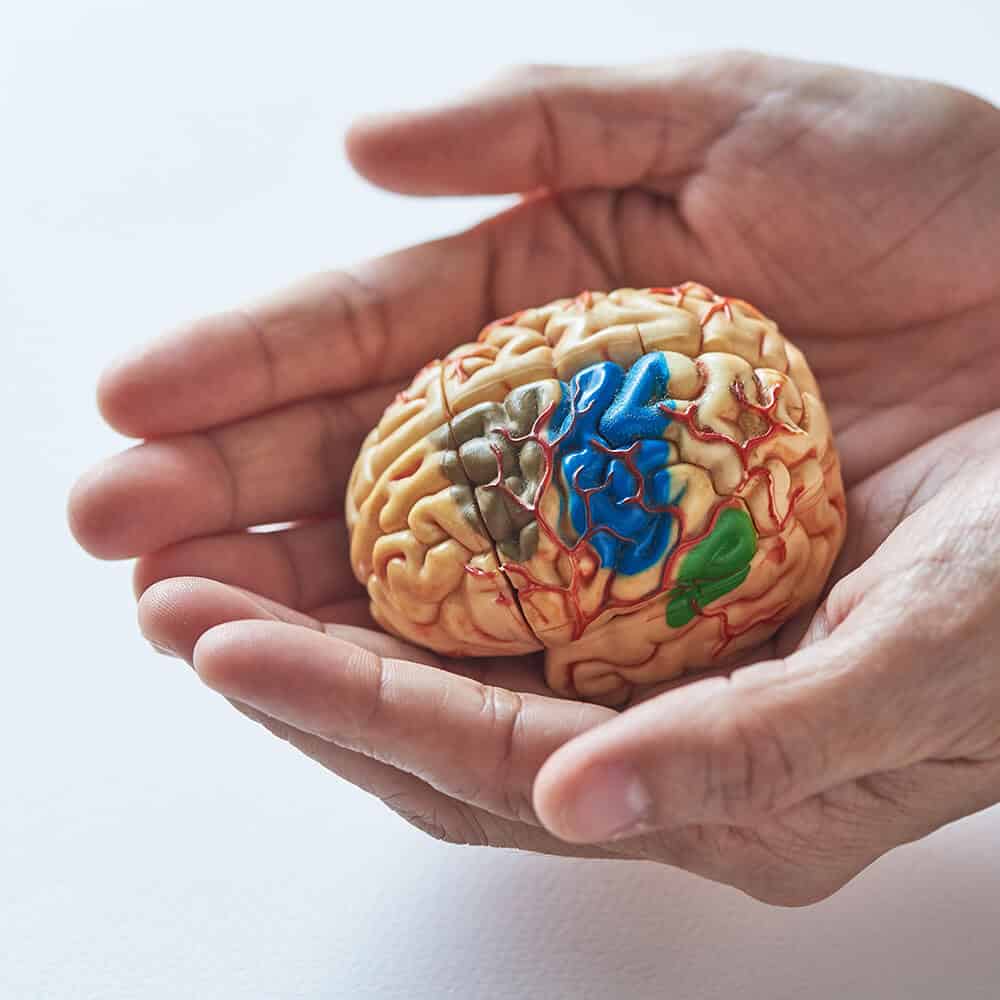Hearing Loss & Dementia
Hearing aids are an important investment in your hearing health and wellness. These hearing instruments amplify and process speech as well as sound. This provides the ears and brain with ample hearing support which alleviates symptoms and maximizes a person’s capacity to hear. Hearing aids not only strengthen communication but also improve relationships, and social life, and enhance health.
Today’s hearing aids are more advanced and sleeker than ever before. There is a wide range of styles, features, and technologies designed to create the optimal experience. This includes delivering quality sound, providing connectivity options, and reducing background noise. Our team will help you navigate your hearing aid options, ensuring you choose a device that will meet your hearing and lifestyle needs. To get started, it is useful to know the following information about hearing aids which will help you better understand your options.

Understanding Dementia
The number of people living with dementia is projected to triple - from 50 million people worldwide to 150 million by 2050. Dementia is an umbrella term that includes several medical conditions characterized by cognitive decline. This includes Parkinson’s, Lewy Body, Huntington’s, and Alzheimer’s. Alzheimer’s disease is the most common type of dementia, accounting for up to 70% of the dementia that people experience. The Alzheimer’s Association estimates that 6.2 million people in the U.S. have Alzheimer’s.
Link Between Hearing Loss & Dementia
There is an extensive amount of research that highlights a correlation between hearing loss and dementia. This includes a major study conducted by researchers at Brigham and Women’s Hospital and Harvard Medical School. Researchers assessed the hearing and cognitive capacities of over 10,000 people, ages 62 and older. After 8 years of evaluation, researchers found that cognitive decline was:
- 30% higher among people with mild hearing loss
- 42% higher among people with moderate hearing loss
- 54% higher among people with severe hearing loss
These findings show that people with severe hearing loss were more than twice as likely to experience cognitive decline. This supports substantial research that identifies hearing loss as a factor that can affect brain health and contribute to the development of dementia.

Impact of Hearing Loss on the Brain
There are several ways that hearing loss can impact brain health. It is important to know that the brain plays a crucial role in how sound is processed and understood. There are areas of the brain that are responsible for processing auditory information. These areas can be impacted in a few ways that then contribute to cognitive decline. This includes:
These potential outcomes of hearing loss highlight the importance of treating hearing loss which can protect brain health and reduce the risk of cognitive decline.
Treating Hearing Loss Supports Brain Health
University of Melbourne Study
Researchers investigated how hearing aid use impacts the brain by evaluating the hearing and cognitive abilities of nearly 100 people (ages 62-82), before and after the use of hearing aids. Researchers found that: “97% of participants showed either clinically significant improvement or stability in executive function (mental ability to plan, organize information and initiate tasks)”.
Study Published in the Journal of American Geriatrics Society
Researchers facilitated memory tests with 2,000 people (ages 50 and older) and found that wearing hearing aids increased test scores. They concluded that hearing aids can change the trajectory of cognitive health among adults.
These studies reveal the positive impact hearing aids have on brain health. Treating hearing loss can protect brain health from cognitive decline and associated conditions like dementia.
